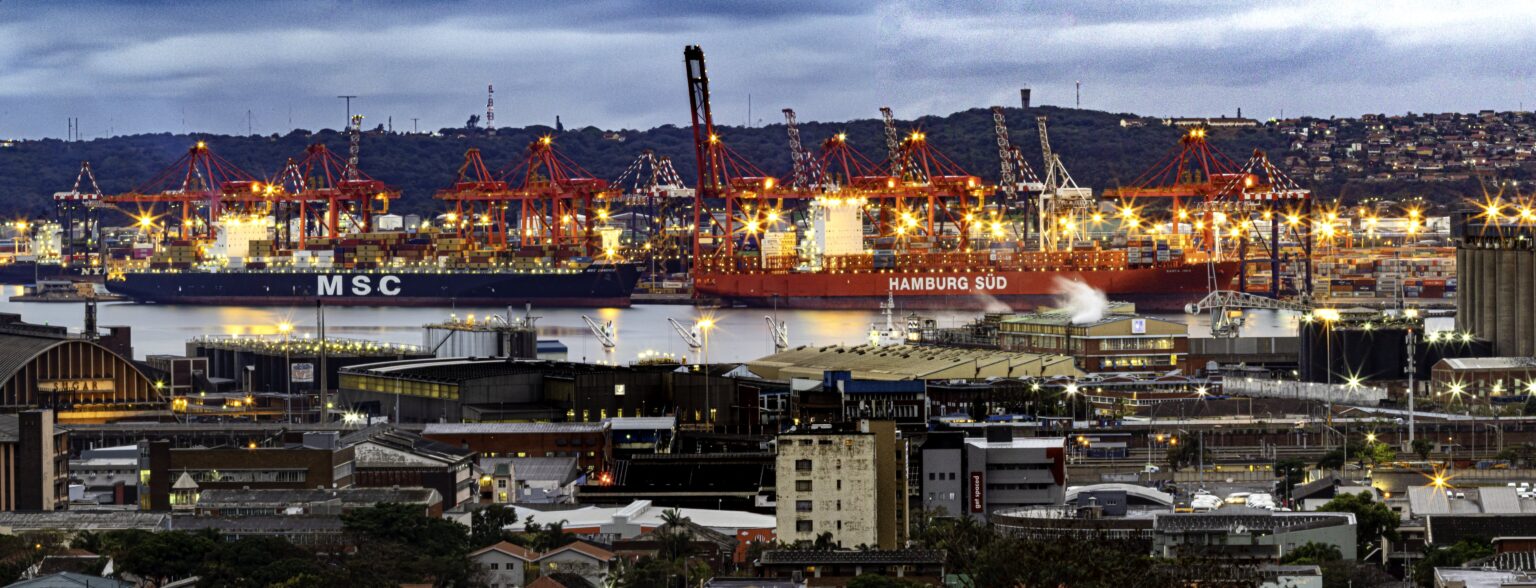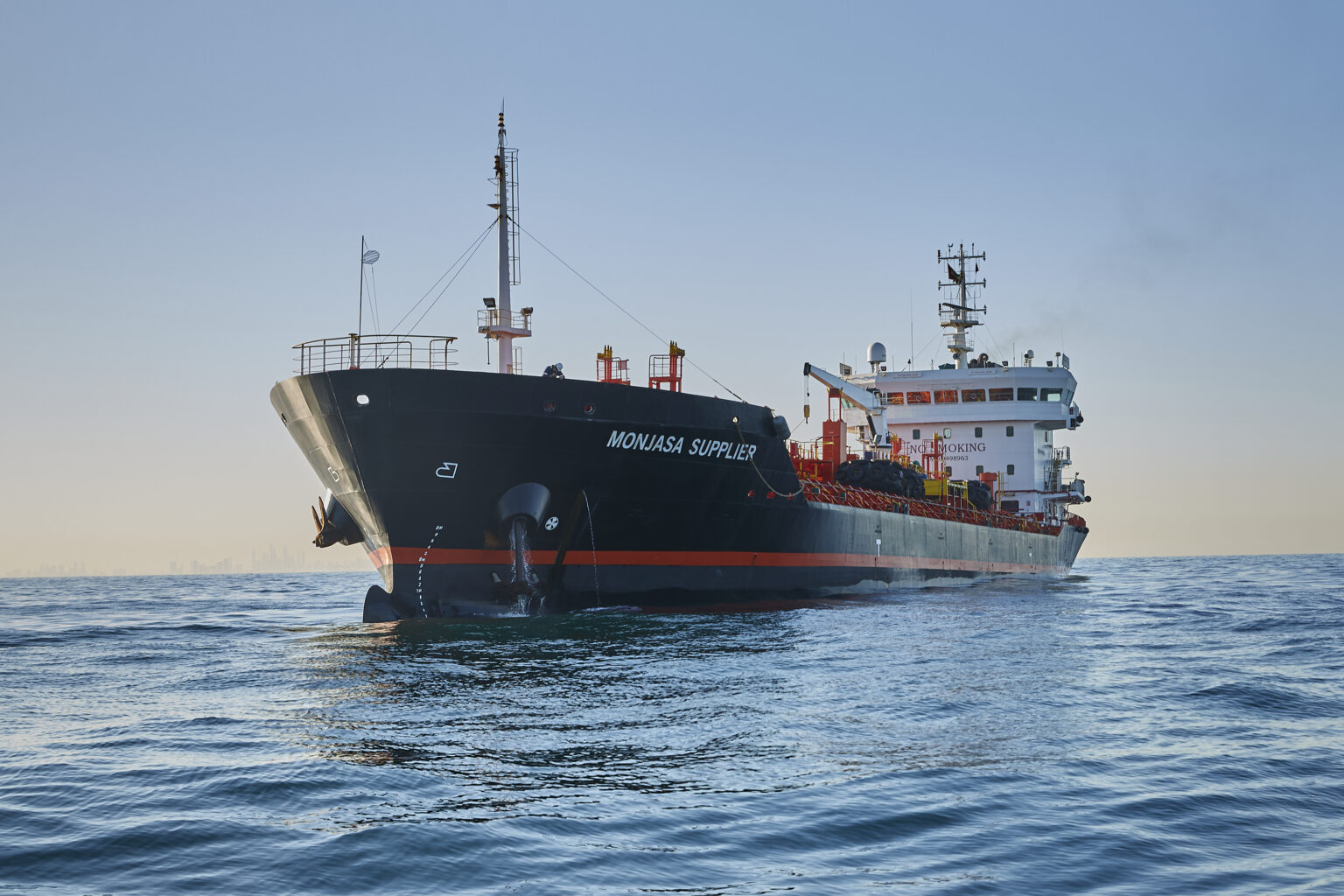Friends In Need
Bunker suppliers all along the route around the Cape of Good Hope have benefited from ships avoiding the Red Sea, with clear fuel hubs developing – though not at the Cape itself, John Rickards reports

The comparative boom times enjoyed by African bunker suppliers in the wake of ongoing Red Sea attacks has lasted well into 2025, and it’s no surprise that a regional market dominated by a couple of international major suppliers and an array of national bunkering firms trading off the back of their respective countries’ oil stocks or locations close to East-West shipping routes has seen significant expansion from newcomers and growth in local outfits.
South Africa should have been perfectly placed to take advantage of the slew of vessels steering clear of the Red Sea. However, longstanding issues with local supply coupled with bunkering being stopped in Algoa Bay for well over a year – it eventually restarted in February – has meant that bunker sales have continued to slide across 2024. Total fuel sales last year amounted to under 900,000 tonnes, a sharp decline from the country’s heyday.
Various government measures down the years both for and against the fuel sector have meant a mix of regulations, port congestion, high costs and all backed by only limited shoreside infrastructure. On top of which, Astron Energy remains the only local refiner producing marine fuels, leaving the market heavily reliant on more expensive imported fuels. While South African bunkerers continue to press for change in the hopes of reinvigorating the country’s fuel market, it’s been up to other potential hubs to take advantage of traffic shifts and stake a claim to be regional bunkering powerhouses.
West African bunker demand rose 18% last year, and Global Fuel Supply became the latest to take the plunge into the region’s waters by launching its own physical supply operation out of Luanda, Angola, at the end of February. Bunkering is provided by the newly chartered 5,498 dwt tanker RLO Explorer.
“We see tremendous opportunity for growth and expansion in the West African market,” said Bijan Shahbaz, managing partner and COO of GFS. “With some of the most dedicated professionals in the industry, we are fully prepared to add even more value for our customers by delivering a smooth, seamless service that sets new standards in this region.”
The company was at pains to point out the tanker’s relatively short length as an advantage in terms of going alongside oil platforms and floating storage, while also keen to highlight that it is fitted with flow meters and is capable of handling e-BDNs.
In the case of the latter, GFS said it had become the first physical supplier in West Africa to offer fully digitalised bunker operations in April by joining Ofiniti’s FuelBoss platform.
“We are excited to bring digital innovation to our West Africa operations with Ofiniti,“ said Lamin Bara, GFS’ chief commercial office. ”This marks a key milestone in our commitment to delivering smarter, faster, and more transparent services to our customers.”
“Global Fuel Supply joining Ofiniti is a great testament to how technology can play a part in enabling expansion into new markets,“ Ofiniti’s Oliver Brix Sparsø added. ”At Ofiniti, we are confident that the FuelBoss platform can offer increased value for suppliers anywhere in the world.”
Further north, Osprey Energy Marine launched a new physical supply operation at Abidjan towards the turn of the year, offering in-port bunkering.
Monjasa, the longest-standing international supplier and one of the dominant players in the market, added two further tankers (one to replace an existing one repositioned to Panama) to its West African fleet last year. One was a length-restricted vessel to service the offshore sector. The 7,858 dwt Monjasa Hunter “brings new and specialised capabilities to the Monjasa fleet,” the company said.
Group shipping director Torben Maigaard Nielsen added: “Unlike our other tankers in West Africa, which are too big in size for this purpose, Monjasa Hunter offers a distinct advantage for offshore operators in the region. Thanks to her overall length of 101m and her relatively large carrying capacity compared to her size, Monjasa Hunter can support niche length-restricted fuel operations, including FPSOs.”
The company rolls its African sales volumes in with the Middle East in its financial reports, so it’s hard to say for sure how much it’s benefited directly from the Red Sea shift, but Monjasa’s Middle East and Africa combined sales volumes rose over 20% in 2024 – broadly in line with the WAF region’s uptick as a whole.
To the east, Mauritius has been one of the big winners in the move away from Suez – and the halt to bunkering at Algoa Bay. The country’s bunker sales nearly doubled last year to just under 1m tonnes after a lull in growth post-pandemic. Of note, the share of total sales accounted for by HSFO doubled to 22.83% as large scrubber-equipped vessels stopped for fuel. Mauritius is currently planning to more than double its onshore bunker fuel storage in the near future to just over 175,000 tonnes. The country’s government remains keen on turning it into a key Indian Ocean hub, and to be prepared for future fuel developments, with LNG bunkering already one possibility in the coming years.
Mozambique is a smaller bunker destination but has seen steady increases in its offerings in recent years and a growing volume of bunker-only calls at anchorage. Late last year, Maputo Port Development Company signed an extension to its bunkering operating agreement with CPG Bunkering which has seen the company deploy a second tanker to Maputo, expanding services on offer. The exclusive agreement covers all grades of marine fuels, lubricants and ship-to-ship transfer services. On top of that, during the extension period, CPG Bunkering has agreed to evaluate the possible supply of alternative bunker fuels such as biofuels, LNG, methanol and ammonia at Maputo.
This year’s Maritime Week Africa saw various discussions of interest to the bunkering world, with South Africa’s Linsen Nambi and its CEO Durand Naidoo in particular raising interesting points on aspects of the future of the industry and the considerations that have to be kept
in mind when applying them to the
African market.
In the closing leadership panel, which included Naidoo, the subject of mass flow meters and whether or not they should be compulsory was raised. Afterwards, the company put out a statement on the topic:
“From an African perspective, this question cuts deep,” Linsen Nambi said. “We have invested in mass flow meters across our fleet to attract blue chip customers but for many independent barge owners, especially in developing markets, the cost of installing mass flow meters is not just financial – it’s operational. Taking a barge out of service to install the equipment means lost revenue in already tight operating environments. The capital expenditure, combined with downtime, could significantly raise the barrier to entry and disadvantage smaller or emerging players, many of whom are African-owned.”
“If mass flow meters become a baseline order qualifier instead of a competitive order winner, we risk creating a market where only the most well-capitalised players can compete—further marginalising local businesses. As leaders in this space, we must ask: How do we drive progress without leaving our own behind?”
All salient points. The company was similarly forthright on the subject of decarbonisation, raised during the opening day’s sessions.
“The global energy transition, while necessary, comes at a cost – and in Africa, that cost could be disproportionately high,” Linsen Nambi said.
“As the world pushes towards decarbonisation, we must also acknowledge that this shift can increase inflation, especially in regions where energy alternatives are still unaffordable or unavailable. Over 600 million Africans still live without access to electricity. The rise in energy costs will squeeze households further, decreasing disposable income across many developing nations and slowing economic progress.”
“If the transition isn’t inclusive and realistic, we risk leaving entire populations behind. Africa must be at the table – not just to comply, but to co-create solutions that are sustainable and socially just.”
Equally salient. Particularly given the current geopolitical climate, African coastal states could have a key role
in energy shifts, so long as they’re
fully involved.

get
in touch

Constructive Media
Constructive Media
Hornbeam Suite
Mamhilad House
Mamhilad Park Estate
Pontypool
NP4 0HZ
Tel: 01495 239 962
Email: ibia@constructivemedia.co.uk

On behalf of:
IBIA London Office
Suite Lu.231
The Light Bulb
1 Filament Walk, Wandsworth
London, SW18 4GQ
United Kingdom
Tel: +44 (0) 20 3397 3850
Fax: +44 (0) 20 3397 3865
Email: ibia@ibia.net
Website: www.ibia.net

Emails
Publisher & Designer: Constructive Media
ibia@constructivemedia.co.uk
Editor: David Hughes
anderimar.news@googlemail.com
Project Manager: Alex Corboude
alex@worldbunkering.net
